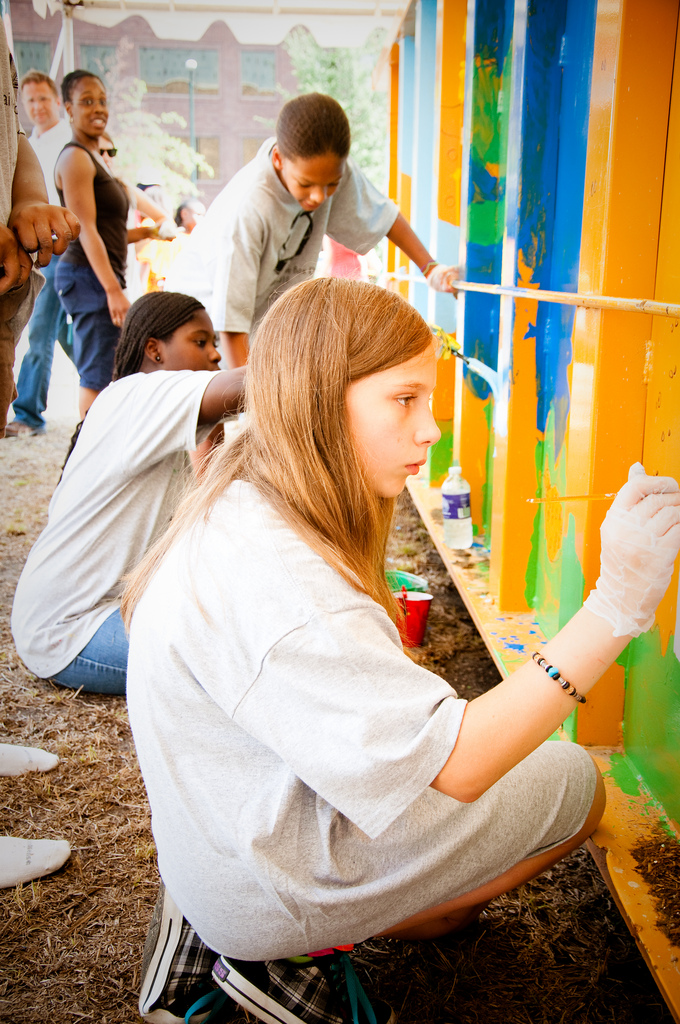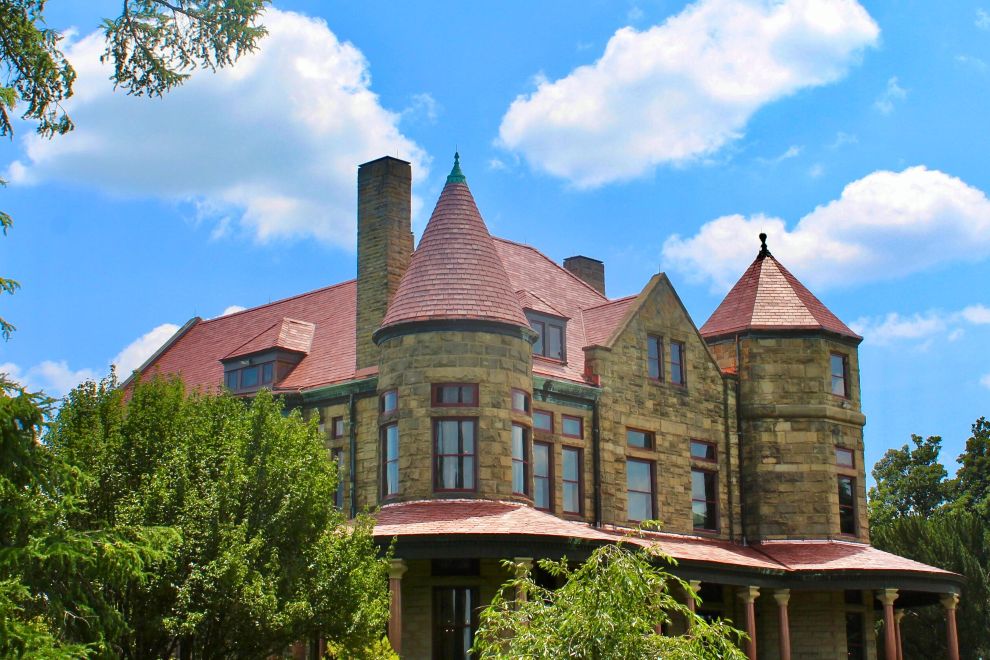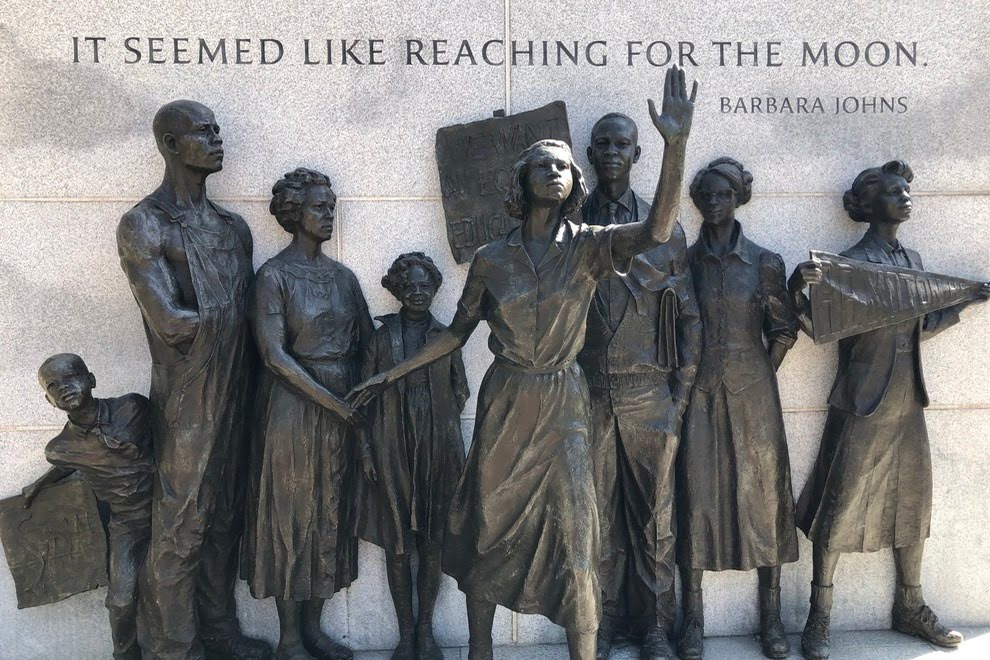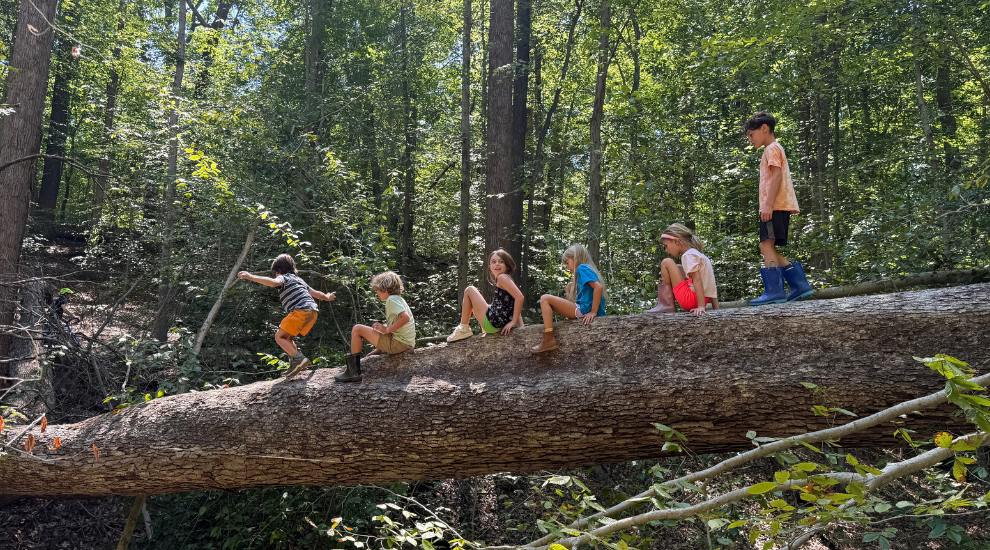Robins Foundation Awards Second Annual Community Innovation Grant to ART180 Collaboration
A visionary and collaborative project designed to help give voice to area youth through advocacy, art programs and leadership opportunities has been named the winner of a $500,000 grant by the Robins Foundation.
The second annual Lora M. and E. Claiborne Robins, Sr. Community Innovation Grant, whose half-million-dollar funding level is believed to be the largest private human services grant in Central Virginia, has been awarded to a collaboration conceived and spearheaded by ART180 called Youth Self-Advocacy Through Art.
Based in Richmond, ART180 creates and provides art-related programs for young people living in challenging circumstances, encouraging personal and community change through self-expression.
“This transformative investment from the Robins Foundation will help launch this innovative collaboration and will amplify the significance of this issue, disrupting the school-to-prison pipeline,” said Juliet Shield-Taylor, Robins Foundation board member who chaired the selection committee. “Children are not born bad, and we must recognize the potential in each and every one. Through the symbiotic relationship among art, law enforcement and the legal community, this project will help transform policies and systems for youth throughout our region.”
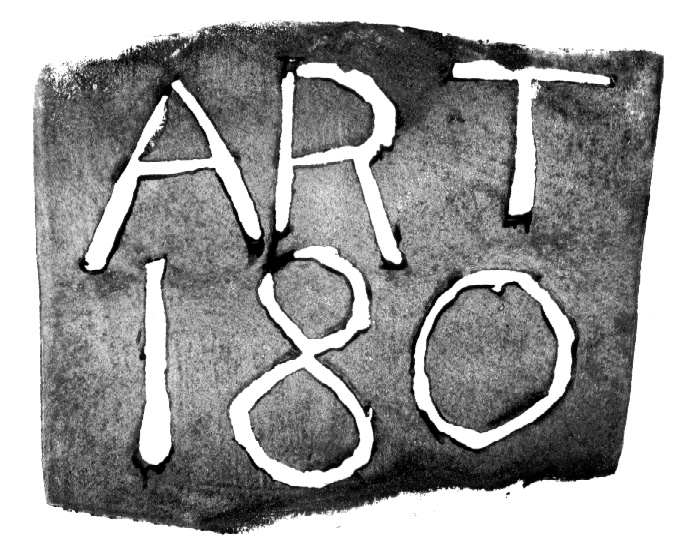 The ART180 project – developed with its partners at the Legal Aid Justice Center (LAJC) – has several components, each of which helps to give voice to young people, particularly those who have run afoul of the rules, through various artistic outlets. In an earlier pilot project, for example, one group of young offenders created a training manual for police officers, offering a powerful perspective on how law enforcement can engage the youth they are confronting. (The Richmond City Police Department is using these manuals today as a training tool for new recruits.)
The ART180 project – developed with its partners at the Legal Aid Justice Center (LAJC) – has several components, each of which helps to give voice to young people, particularly those who have run afoul of the rules, through various artistic outlets. In an earlier pilot project, for example, one group of young offenders created a training manual for police officers, offering a powerful perspective on how law enforcement can engage the youth they are confronting. (The Richmond City Police Department is using these manuals today as a training tool for new recruits.)
This youth advocacy project presents art programs as an alternative to prison, giving juvenile offenders the opportunity to express their emotions through various means of artistic expression. Part and parcel to this effort is an advocacy campaign conducted by LAJC that seeks to change policies and definitions (such as the definition of disorderly conduct). The idea is to stop using the path to prison as the default option for dealing with challenging students and circumstances. Instead, LAJC is working to see that more innovative and constructive alternatives – including art programs – are put in place.
The third tier of the program involves the youth serving as their own advocates for these new policies and programs. By speaking directly to policymakers, public officials, school boards and other educational leaders, students will have important opportunities to articulate a vision for a new future, to help develop their leadership skills and to help mobilize their community for constructive change.
“This award validates that this work needs to happen, that it is a critical, timely issue that our young people deserve to have addressed,” said Marlene Paul, co-founder and executive director of ART180. “We will use this grant over three years to elevate the voices of incarcerated youth, to advocate on their behalf and to bring them to the table to influence policies that directly affect them. It allows us to position them not as problems, but as problem-solvers. We are honored to do this work and partner with the fine people at Legal Aid Justice Center. We are elated and very, very proud.”
Runner-up Grantee The Robins board also recognized Storefront for Community Design with a grant of $125,000 as the CIG runner-up. Working with Saving Our Youth, Groundwork RVA and ART180, the partnership has proposed turning a 10,000-sf building in Highland Park into the Six Points Innovation Center, which would become the center of activity for teens in the neighborhood. As envisioned, it would serve as a venue for after-school, weekend and summer programs designed to improve the quality of life and provide opportunities for young people’s personal development.
This is the second year for the Community Innovation Grant, which received applications from more than 60 nonprofit organizations throughout Greater Richmond.
For more information about the Robins Foundation, including other grant categories and deadlines, please visit the foundation’s website at www.RobinsFDN.org or the foundation’s Facebook page.


